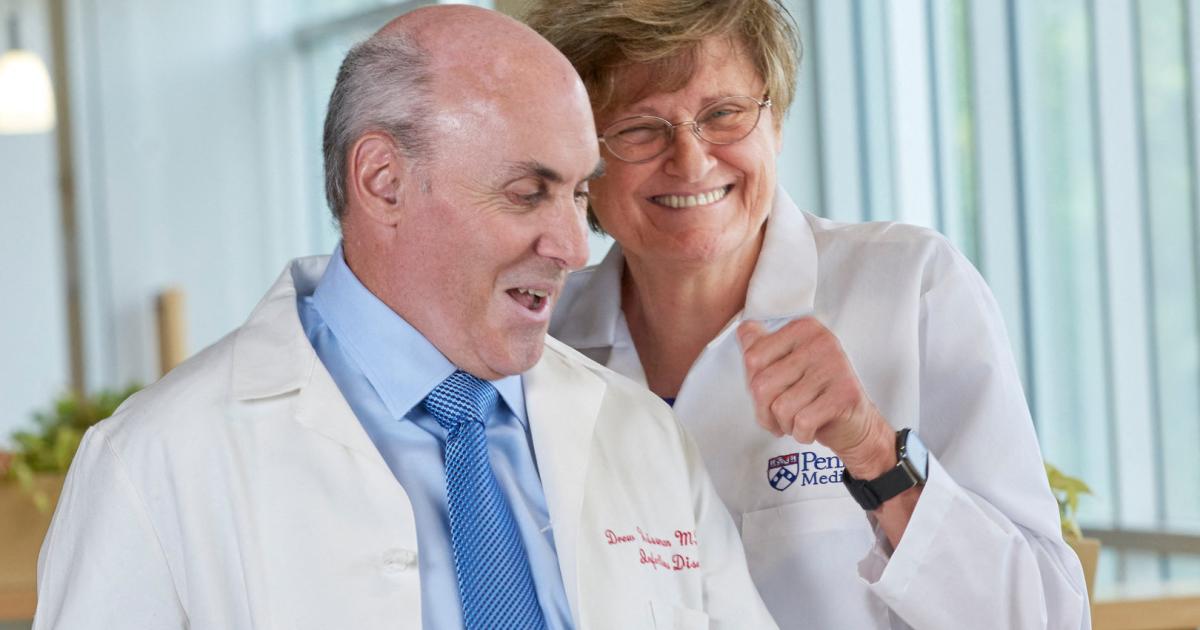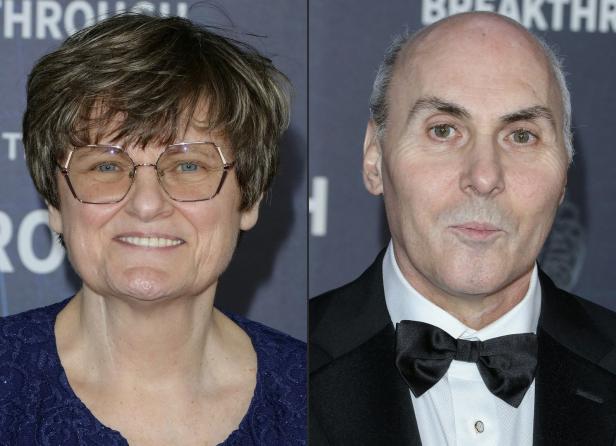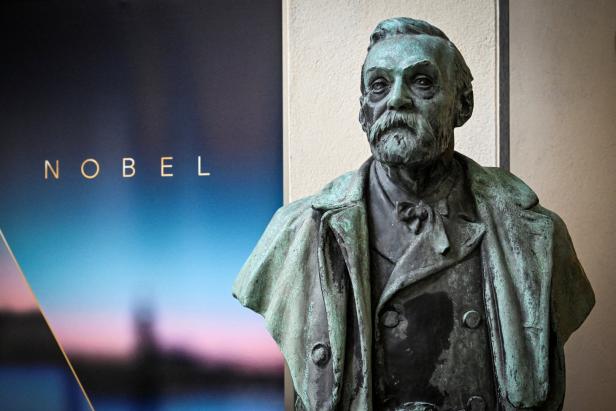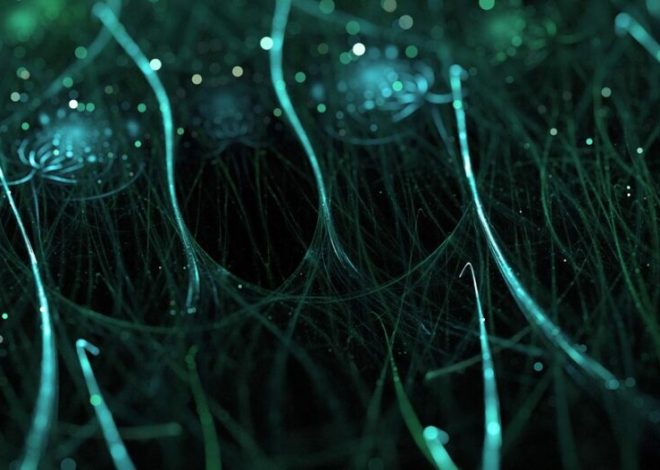
Nobel Prize in Medicine for mRNA technology behind Covid vaccination


Catalin Kariko and Drew Weissman will receive this year’s Nobel Prize for Medicine. This was announced by the Nobel Assembly of the Karolinska Institute in Stockholm on Monday. The Hungarian-born researcher and the American were awarded “for fundamental insights into the development of RNA technology“, it said in the justification. These led to the development of mRNA vaccines against the corona virus, which first appeared in 2020.
Katalin Karikó, born in Hungary in 1955, currently works at the Universities of Pennsylvania/USA and Szeged/Hungary, Drew Weissman (64) at the University of Pennsylvania/USA.
This year’s Nobel Prizes are endowed with eleven million Swedish kronor (around 930,000 euros). Since the first award in 1901, a total of 225 people have received the Nobel Prize in Medicine. Karikó is only the 13th woman to receive the award for medicine.
Justification due to “groundbreaking results”
Through their groundbreaking results that fundamentally changed our understanding of how mRNA interacts with the human immune system, the laureates contributed to the unprecedented pace of vaccine development during one of the greatest threats to human health in modern times,” the Nobel Committee said.
The impressive flexibility and speed with which mRNA vaccines can be developed paves the way for the new platform to be used for vaccines against other infectious diseases. “In the future, the technology could also be used to administer therapeutic proteins and treat certain types of cancer.”
“Several other vaccines against Sars-CoV-2 based on different methods were also rapidly introduced, and in total more than 13 billion Covid-19 vaccine doses have been administered worldwide,” the committee said. “The vaccines have saved millions of lives and prevented serious illness in many more, allowing societies to open up and return to normal conditions.”

The 2023 Nobel Prize winners in Medicine: Katalin Karikó and Drew Weissman.
68-year-old Katalin Karikó is often referred to as the “mother of mRNA vaccines.”
In an interview with KURIER in early 2022, she explained that her original goal was to develop new therapies, for example against cancer:
➤ Read more: RNA researcher Karikó: “Without vaccines, many more people would have died”
mRNA research began several decades before the development of vaccines. The original goal of RNA research was to develop a therapy against HIV and cancer.
Karikó also always emphasizes that the development of the vaccines was based on the findings of many scientists who have been working with mRNA technology for decades. “If we did not have vaccines, many more people would have died from Covid-19, that is obvious. Of course, there is no medicine without side effects, but these are really very low with mRNA vaccines, even compared to other vaccines.”
In 1998, she first met the US biochemist Drew Weissman by chance at the University of Pennsylvania – at the photocopier in her hallway. He was researching an HIV vaccine using RNA and both had the same problem: the mRNA was not stable and always led to inflammation in experiments with mice. The two made their breakthrough in 2005: Karikó and Weissman managed to find out what triggered the inflammatory reactions – a special genetic building block of the mRNA. They replaced it with a slightly chemically modified variant. But at the time, the experts were not particularly interested in these findings. The study by Karikó and Weissman was rejected by the high-ranking journals Nature and Science, Weissman said in an interview with the New York Times. Eventually it was accepted by a “niche magazine” (Immunity).
Subsequently, two biotech companies also became aware of the work: Moderna, in the United States, and BioNTech in Germany. The companies were investigating the use of mRNA vaccines against influenza, cancer and other diseases. Trials of therapeutic cancer vaccines based on mRNA were conducted many years before the pandemic began.
You can read a portrait of Katalin Karikó here:
➤ Read more: Katalin Karikó: Great success after many disappointments
The principle behind cancer vaccinations is the same as that behind Covid vaccines: you make the immune system aware of certain characteristics of cancer cells so that it can attack them specifically.
At the end of 2022, the US companies Moderna and MSD were able to report a success against black skin cancer: 157 melanoma patients received either only a very good modern immunotherapy (which generally makes the tumor more visible to the immune system) or a combination of immunotherapy and mRNA vaccination. In the latter group, the risk of the tumor recurring or the patients dying during the observation period fell by a further 44 percent compared to immunotherapy alone.
Genome researcher honored in 2022
Last year, the Swedish evolutionary researcher Svante Pääbo was honored. Pääbo received the Nobel Prize in Medicine “for his discoveries concerning the genomes of the ancestors of modern humans and human evolution.” Among other things, he succeeded in sequencing the Neanderthal genome.
Kick-off for the Nobel Prize Week
The winners of the physics prize will be announced on Tuesday and those of the chemistry prize on Wednesday. After the science prizes, the Nobel Prize for Literature will be awarded as usual on Thursday, followed by the Nobel Peace Prize on Friday. This is the only Nobel Prize that will not be announced in the Swedish capital Stockholm, but in the Norwegian capital Oslo. The award for economics will conclude next Monday.
➤ Read more: Nobel Prize Week: Who is worthy of the prize and why?
The Nobel Prizes are based on the will of dynamite inventor and prize founder Alfred Nobel (1833-1896). They are intended to honor those who have provided the greatest benefit to humanity in the individual categories in the previous year. The awarding institutions usually do not pay too much attention to the time limit. The prizes are traditionally awarded on December 10, the anniversary of Nobel’s death.

One thing is different this year than in previous years: the prize money awarded per category has been increased by the Nobel Foundation by one million Swedish kronor to eleven million kronor. According to the latest exchange rate, this is around 950,000 euros.
The Nobel Prize winners in medicine of the past years
2022: The Swedish researcher Svante Pääbo, who works in Leipzig, for his findings on the evolution of humans and their extinct relatives. Among other things, he was the first to sequence the Neanderthal genome.
2021: David Julius (USA) and the Lebanese-born researcher Ardem Patapoutian. They have discovered cell receptors through which people perceive temperature and touch.
2020: Harvey J. Alter (USA), Michael Houghton (Great Britain) and Charles M. Rice (USA), who made significant contributions to the discovery of the hepatitis C virus.
2019: William Kaelin (USA), Peter Ratcliffe (Great Britain) and Gregg Semenza (USA). They discovered how cells perceive oxygen levels and adapt to them.
2018: The American James Allison and the Japanese Tasuku Honjo for the development of immunotherapies against cancer.
2017: The US researchers Jeffrey Hall, Michael Rosbash and Michael Young for their research into the internal clock.
2016: The Japanese Yoshinori Ohsumi, who deciphered the vital recycling system in body cells.
2015: The Chinese Youyou Tu, who discovered the anti-malarial drug artemisinin. She shared the prize with Irish-born William C. Campbell and Japanese Satoshi Omura, who had worked on combating other parasites.
2014: The Norwegian couple May-Britt and Edvard Moser and John O’Keefe (USA/Great Britain) for the discovery of a navigation system in the brain: They found fundamental structures of our sense of orientation.
2013: Thomas Südhof (born in Germany) as well as James Rothman (USA) and Randy Schekman (USA) for the discovery of essential transport mechanisms in cells.
notepad
A list of all previous Nobel Prize winners in medicine can be found here.
That is not an easy question to answer. Last year’s winner, the physicist Anton Zeilinger19 Nobel Prize winners were born within the borders of what is now Austria, and a total of 32 were born in an area that belonged to Austria at the time of their birth. Seven Nobel Prize winners were working at an Austrian university or research institution at the time of the award ceremony.
In the area of today’s Austria, in addition to Anton Zeilinger, who was born in Ried im Innkreis/Upper Austria in 1945, the following people were awarded prizes:
- Nobel Prize in Physics: Erwin Schrödinger (1887 in Vienna/Nobel Prize 1933), Viktor F. Hess (1883 in Peggau/1936) and Wolfgang Pauli (1900 in Vienna/1945)
- Nobel Prize in Chemistry: Richard Kuhn (1900 in Vienna/1938), Max F. Perutz (1914 in Vienna/1962), Walter Kohn, (1923 in Vienna/1998) Richard Zsigmondy (1865 in Vienna/1925) and Martin Karplus (1939 in Vienna/2013)
- Nobel Prize in Medicine: Robert Barany (1876 in Vienna/1914), Julius Wagner-Jauregg (1857 in Wels/1927), Karl Landsteiner (1868 in Vienna/1930), Karl von Frisch (1886 in Vienna/1973), Konrad Lorenz (1903 in Vienna/1973) and Eric Kandel (1929 in Vienna/2000)
- Nobel Prize in Literature: Elfriede Jelinek (1946 in Mürzzuschlag/2004) and Peter Handke (1942 in Griffen/2019)
- Nobel Peace Prize: Alfred Fried (1864 in Vienna/1911)
- Nobel Prize in Economics: Friedrich August von Hayek (1899 in Vienna/1974).
- In addition, there are prizewinners such as Bertha von Suttner (born 1843 in Prague, Nobel Peace Prize 1905) or Fritz Pregl (born 1869 in Ljubljana; Nobel Prize in Chemistry 1923), who are traditionally seen as “Austrian Nobel Prizewinners” due to their main areas of activity, but whose place of birth was “only” in the territory of the then Danube Monarchy.
The Nobel Prizes have been awarded since 1901. In addition, since 1969 an award for economic sciences in memory of Alfred Nobel. It was sponsored by the Swedish Riksbank.
➤ Read more: “We are Nobel Prize”: What the “Zeilinger Effect” really brought
On October 4, 2022, Anton Zeilinger (78) was awarded the 2022 Nobel Prize in Physics – together with the French physicist Alain Aspect and his US colleague John F. Clauser, among other things, “for experiments with entangled photons”.
Presented All prizes will be awarded on December 10, the anniversary of Nobel’s death.

Ethel Purdy – Medical Blogger & Pharmacist
Bridging the world of wellness and science, Ethel Purdy is a professional voice in healthcare with a passion for sharing knowledge. At 36, she stands at the confluence of medical expertise and the written word, holding a pharmacy degree acquired under the rigorous education systems of Germany and Estonia.
Her pursuit of medicine was fueled by a desire to understand the intricacies of human health and to contribute to the community’s understanding of it. Transitioning seamlessly into the realm of blogging, Ethel has found a platform to demystify complex medical concepts for the everyday reader.
Ethel’s commitment to the world of medicine extends beyond her professional life into a personal commitment to health and wellness. Her hobbies reflect this dedication, often involving research on the latest medical advances, participating in wellness communities, and exploring the vast and varied dimensions of health.
Join Ethel as she distills her pharmaceutical knowledge into accessible wisdom, fostering an environment where science meets lifestyle and everyone is invited to learn. Whether you’re looking for insights into the latest health trends or trustworthy medical advice, Ethel’s blog is your gateway to the nexus of healthcare and daily living.



